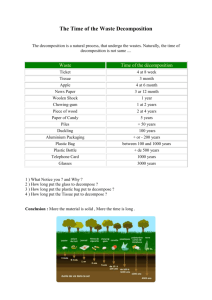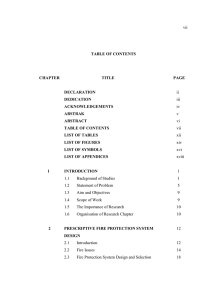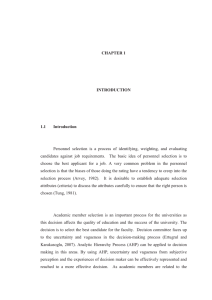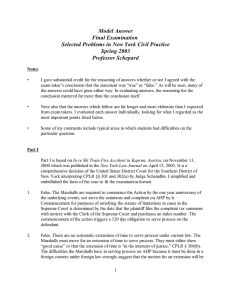Example 4.11, Chapter 4. (Math 414-501, Spring 2015) Let f
advertisement
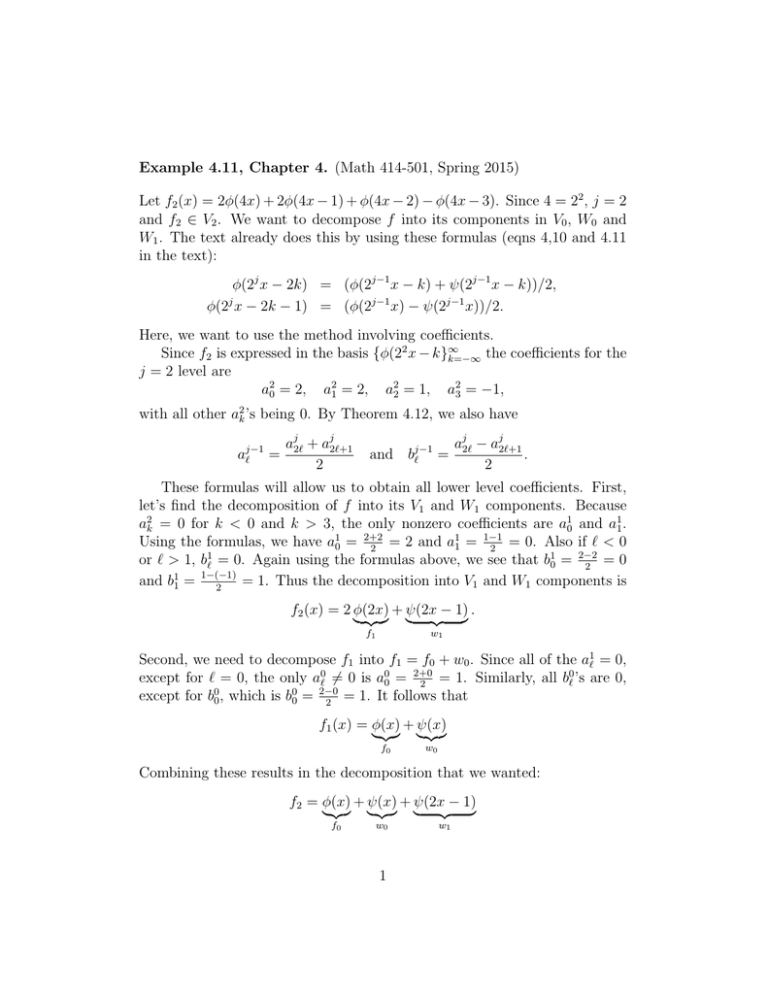
Example 4.11, Chapter 4. (Math 414-501, Spring 2015)
Let f2 (x) = 2φ(4x) + 2φ(4x − 1) + φ(4x − 2) − φ(4x − 3). Since 4 = 22 , j = 2
and f2 ∈ V2 . We want to decompose f into its components in V0 , W0 and
W1 . The text already does this by using these formulas (eqns 4,10 and 4.11
in the text):
φ(2j x − 2k) = (φ(2j−1 x − k) + ψ(2j−1 x − k))/2,
φ(2j x − 2k − 1) = (φ(2j−1 x) − ψ(2j−1 x))/2.
Here, we want to use the method involving coefficients.
Since f2 is expressed in the basis {φ(22 x − k}∞
k=−∞ the coefficients for the
j = 2 level are
a20 = 2, a21 = 2, a22 = 1, a23 = −1,
with all other a2k ’s being 0. By Theorem 4.12, we also have
aj2` + aj2`+1
aj2` − aj2`+1
j−1
=
and b` =
.
2
2
These formulas will allow us to obtain all lower level coefficients. First,
let’s find the decomposition of f into its V1 and W1 components. Because
a2k = 0 for k < 0 and k > 3, the only nonzero coefficients are a10 and a11 .
Using the formulas, we have a10 = 2+2
= 2 and a11 = 1−1
= 0. Also if ` < 0
2
2
1
=0
or ` > 1, b` = 0. Again using the formulas above, we see that b10 = 2−2
2
1−(−1)
1
and b1 = 2 = 1. Thus the decomposition into V1 and W1 components is
a`j−1
f2 (x) = 2 φ(2x) + ψ(2x − 1) .
| {z } | {z }
w1
f1
Second, we need to decompose f1 into f1 = f0 + w0 . Since all of the a1` = 0,
except for ` = 0, the only a0` 6= 0 is a00 = 2+0
= 1. Similarly, all b0` ’s are 0,
2
except for b00 , which is b00 = 2−0
= 1. It follows that
2
f1 (x) = φ(x) + ψ(x)
|{z} |{z}
f0
w0
Combining these results in the decomposition that we wanted:
f2 = φ(x) + ψ(x) + ψ(2x − 1)
|{z} |{z} | {z }
f0
w0
1
w1





